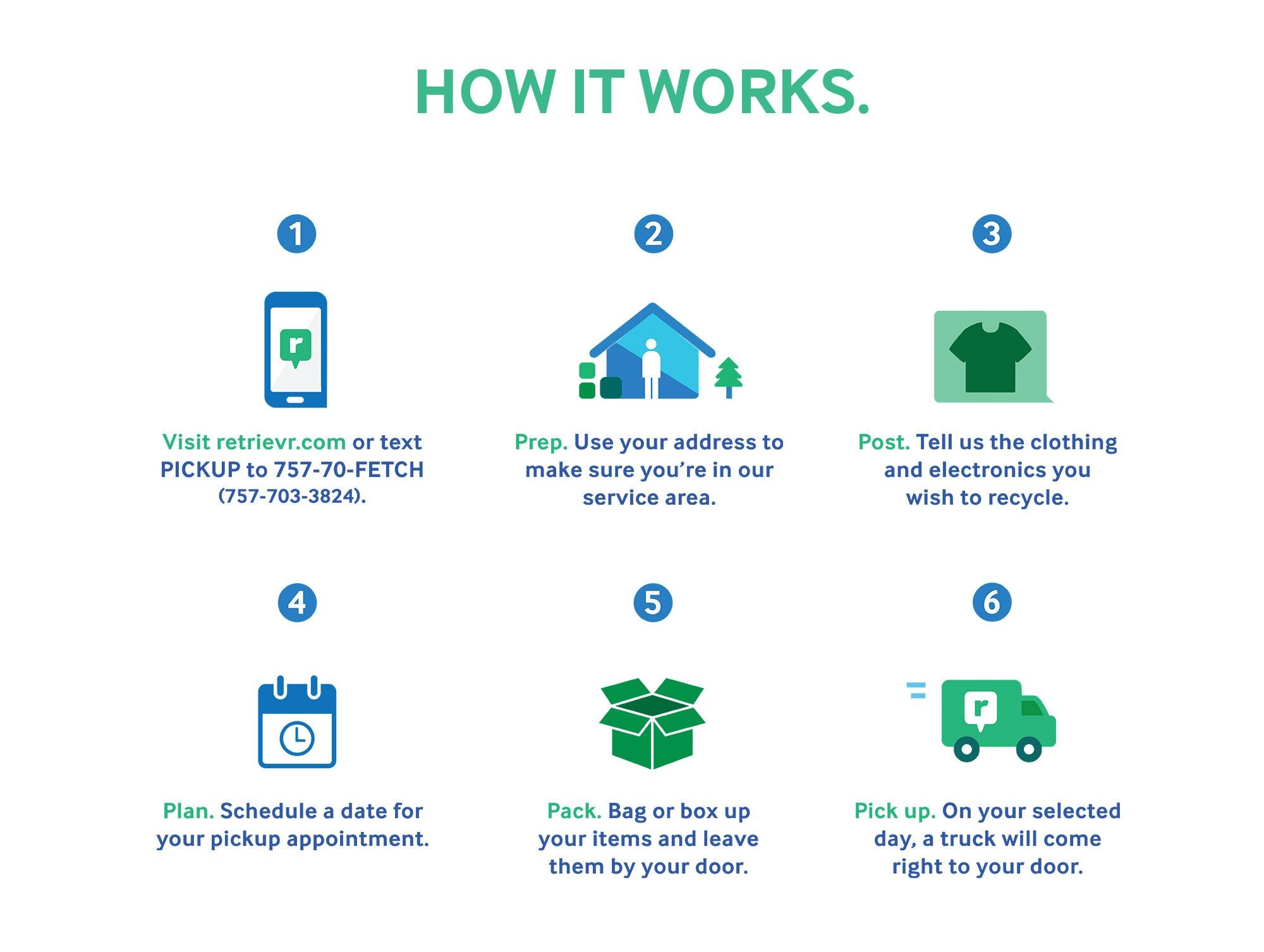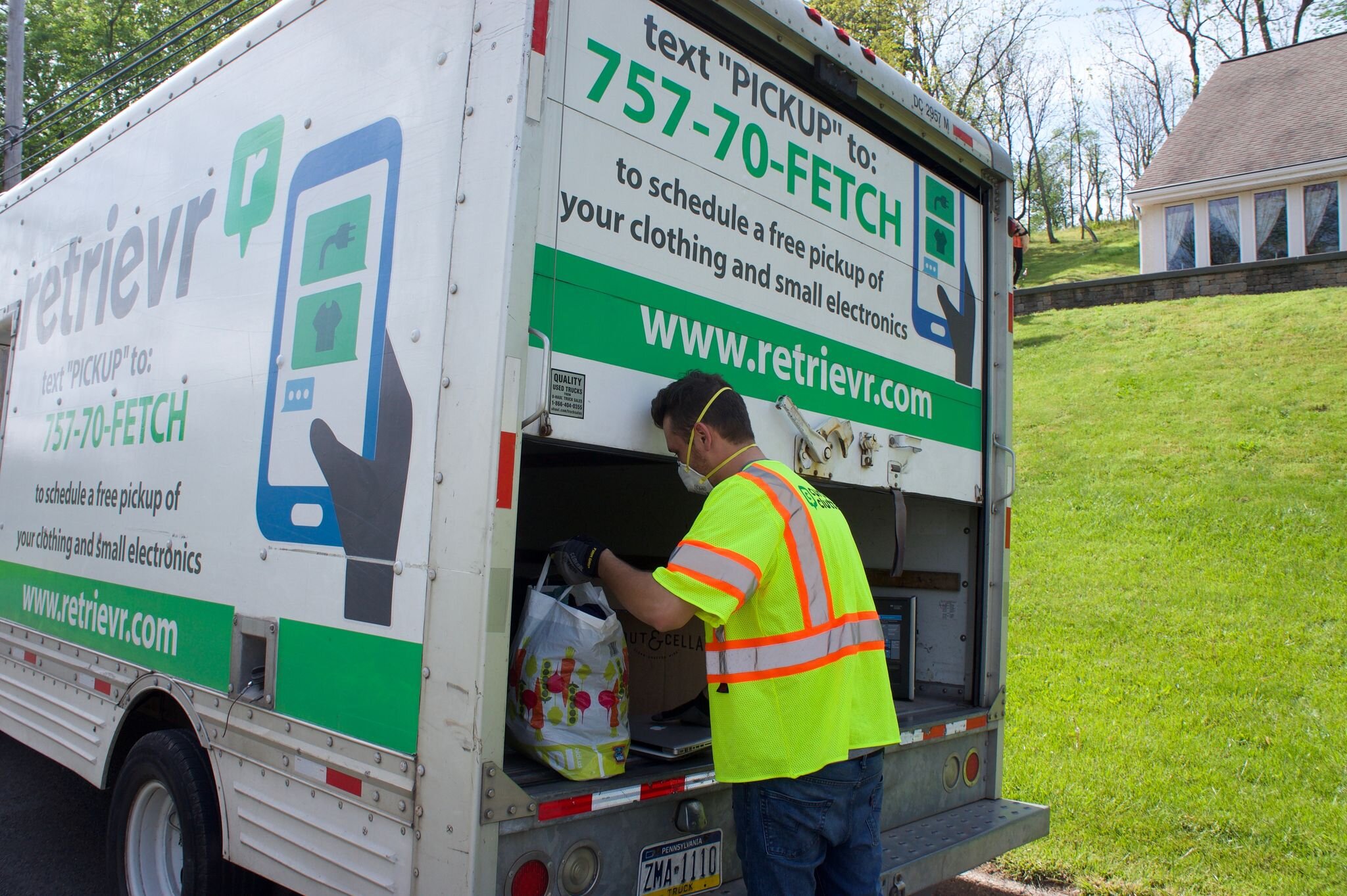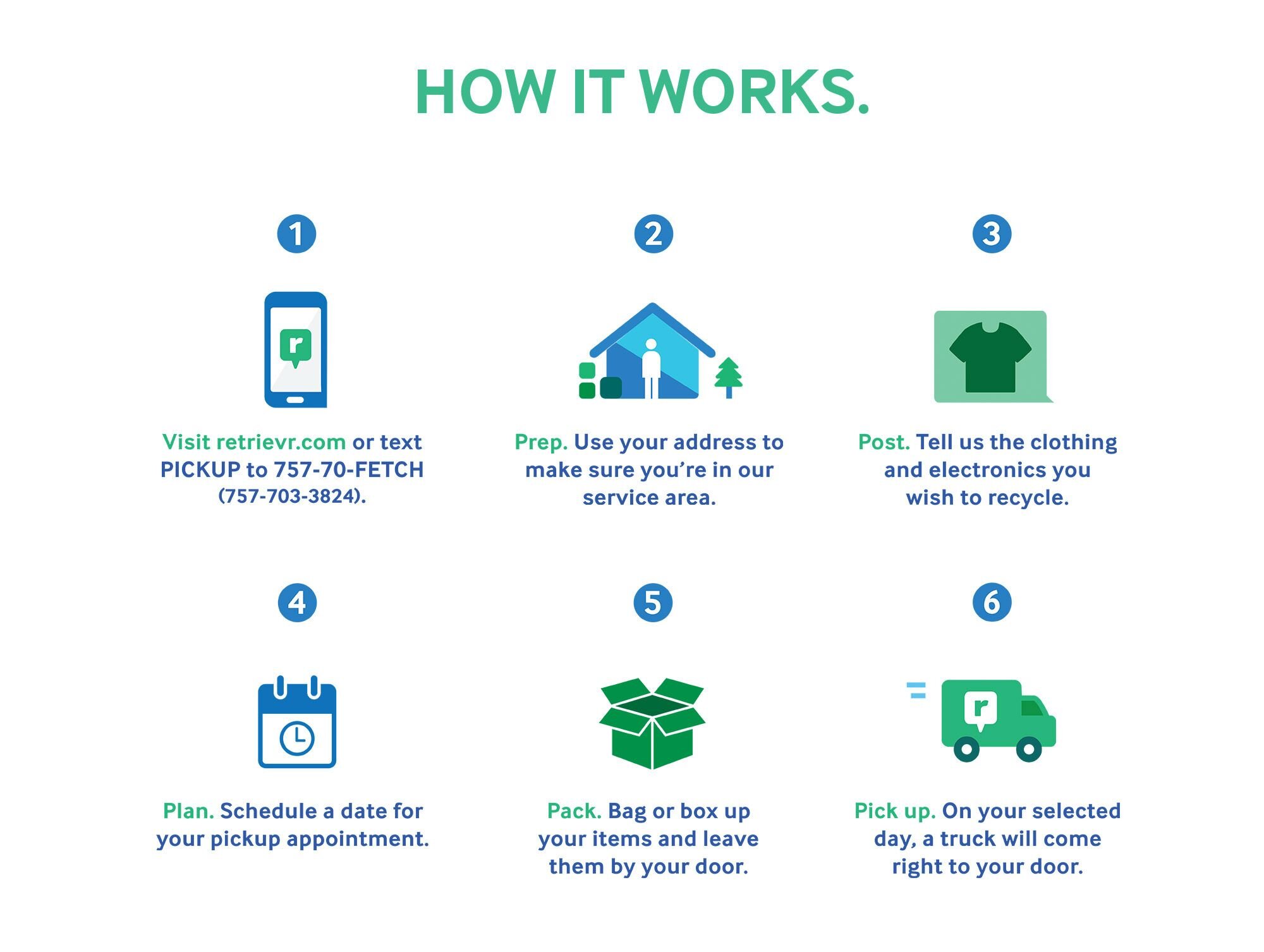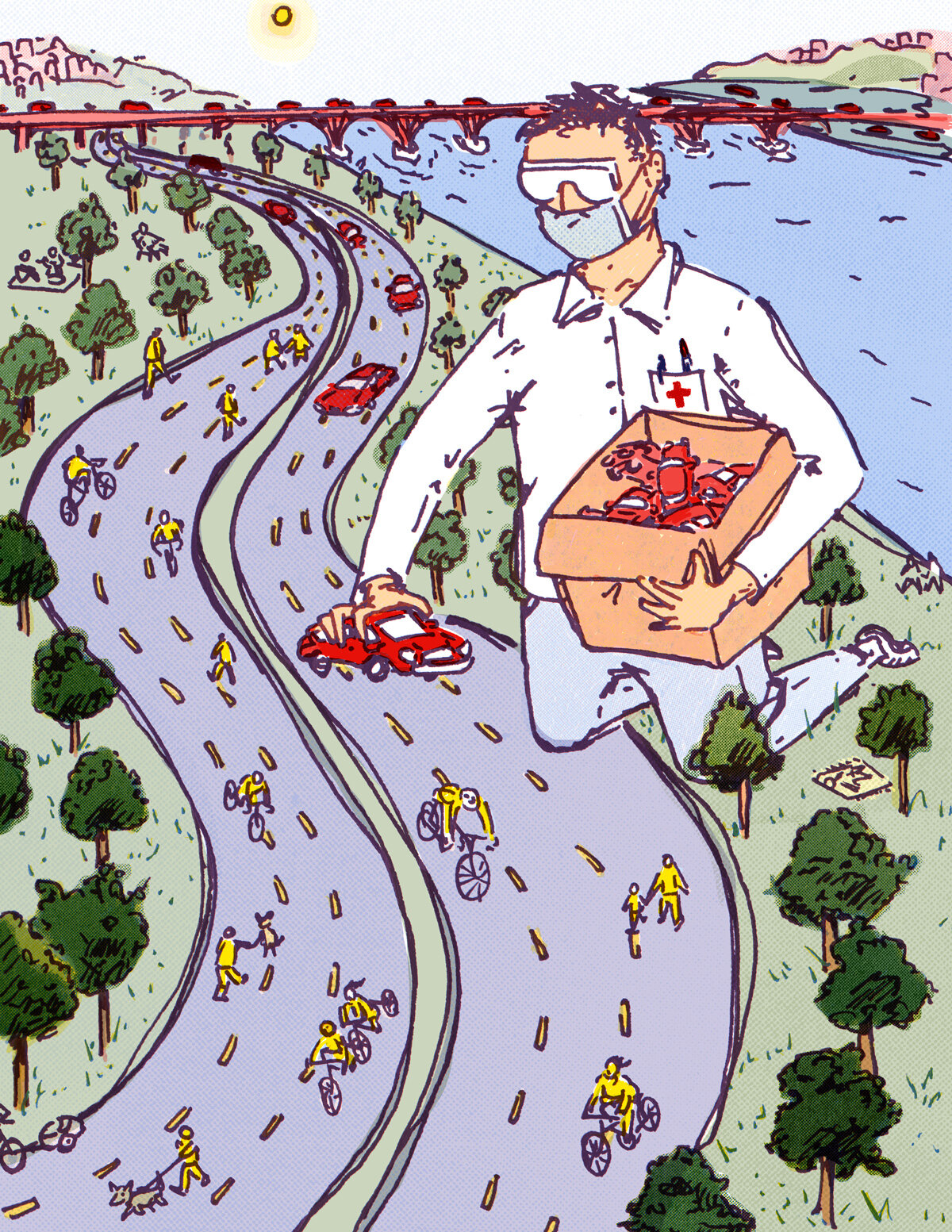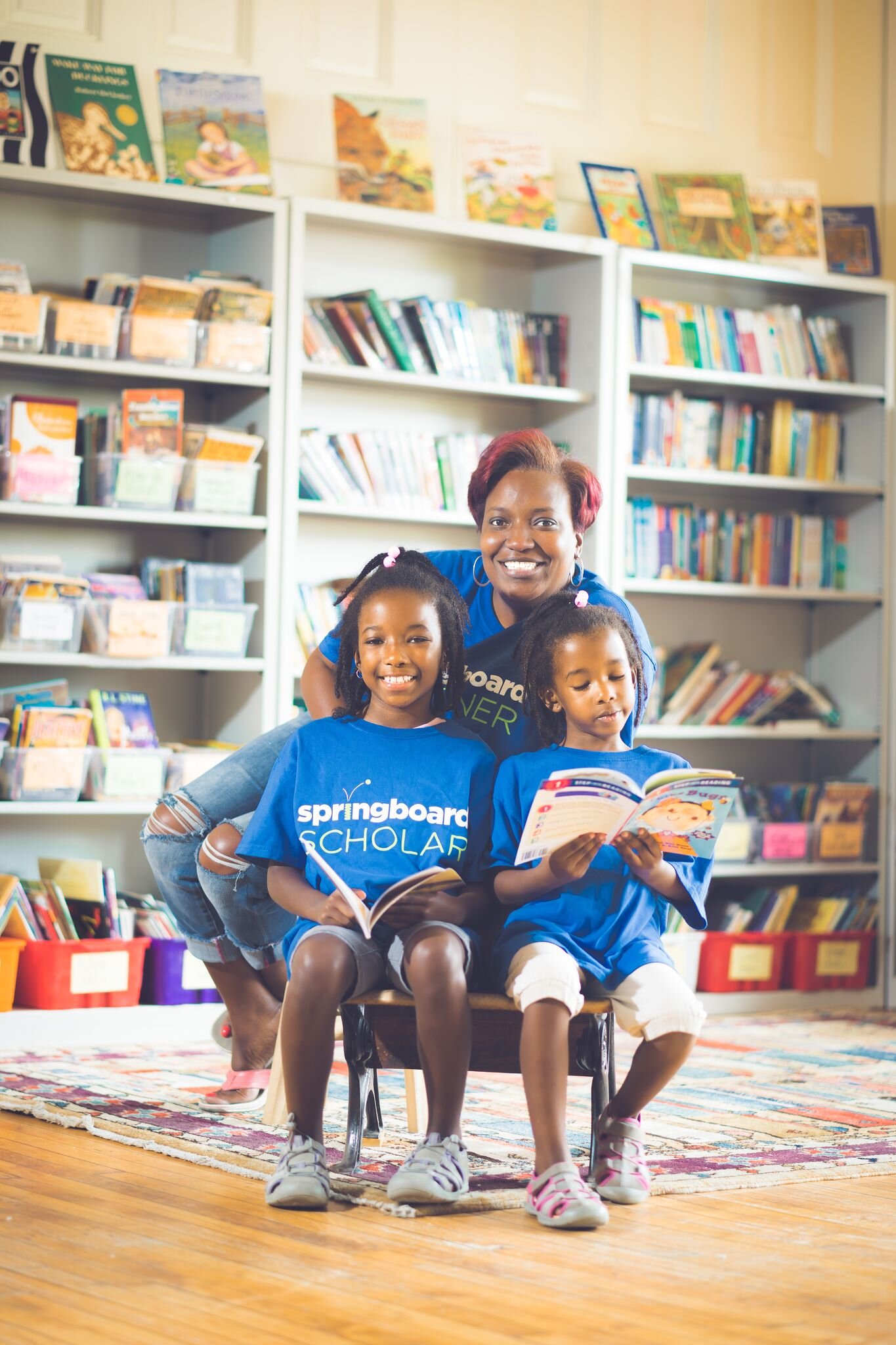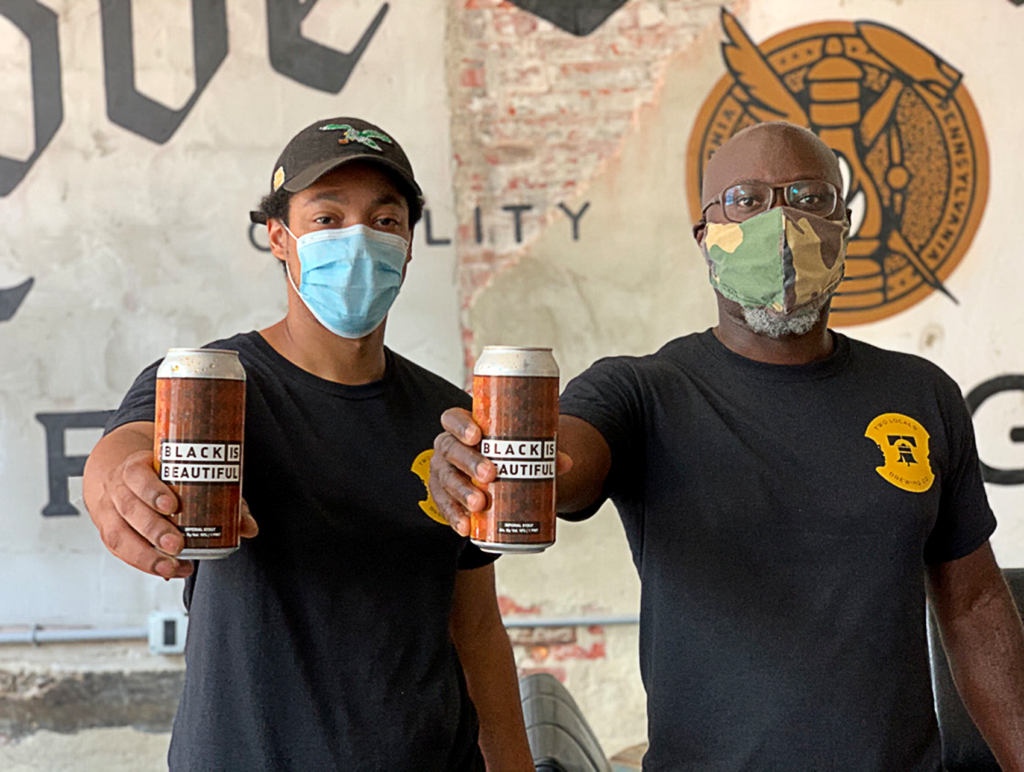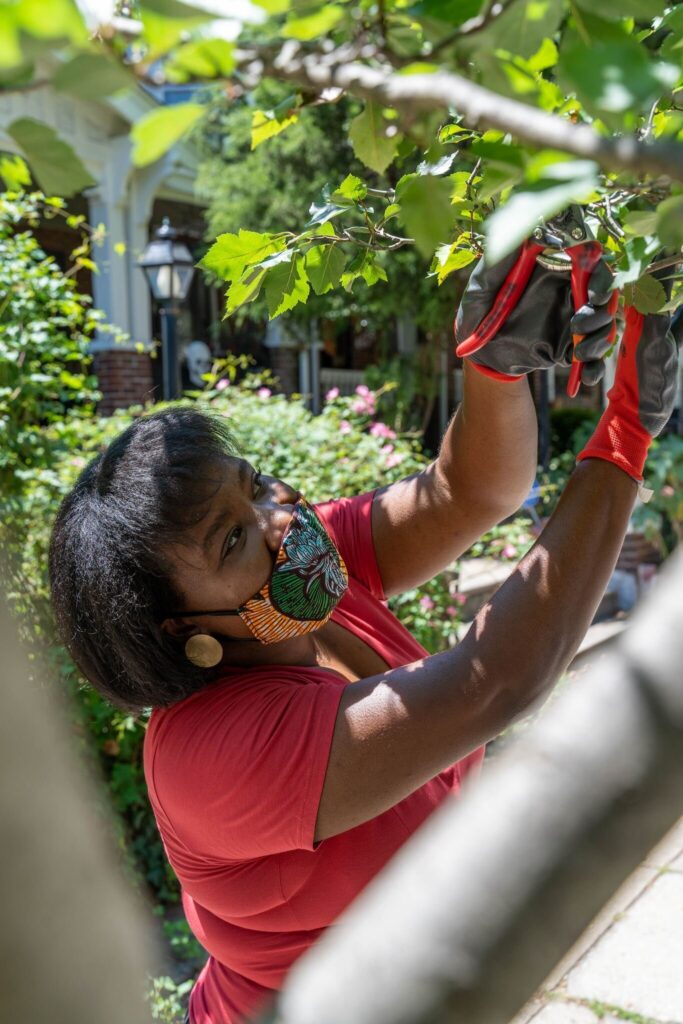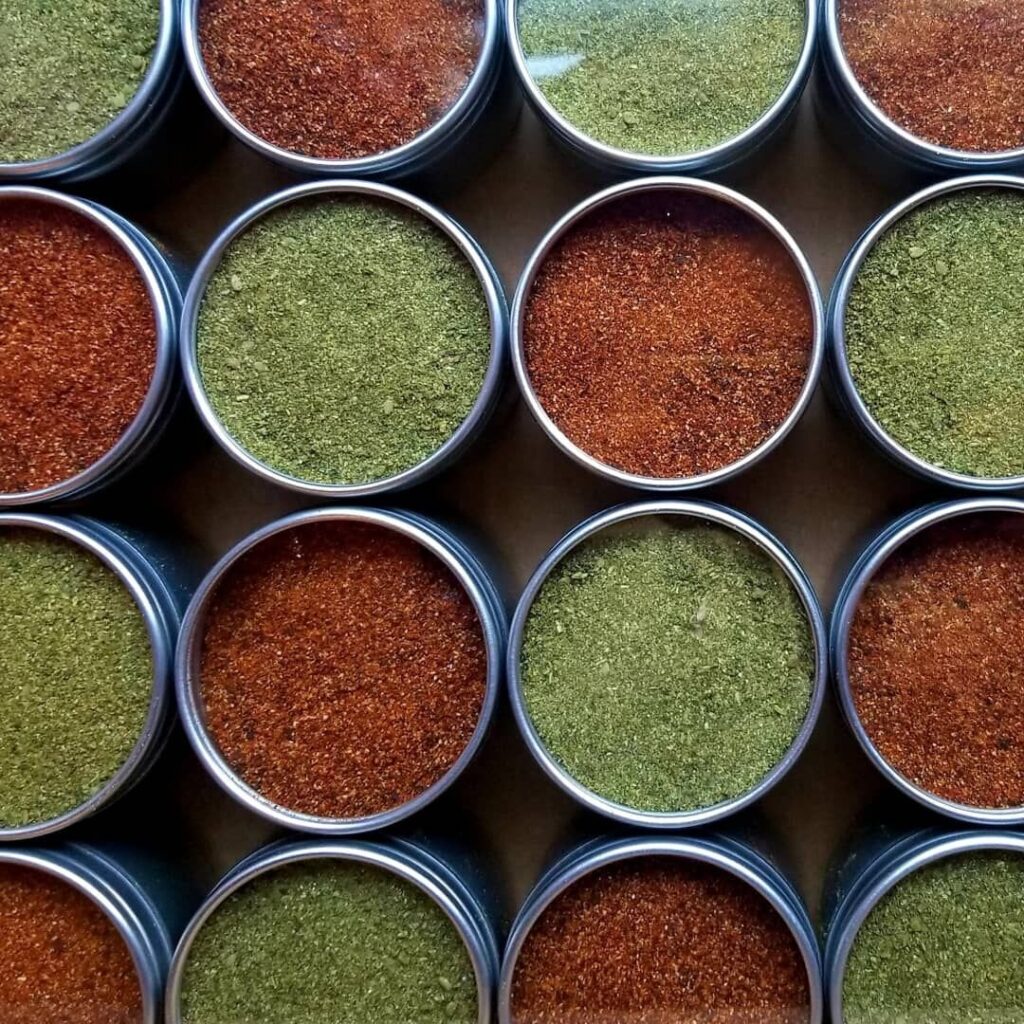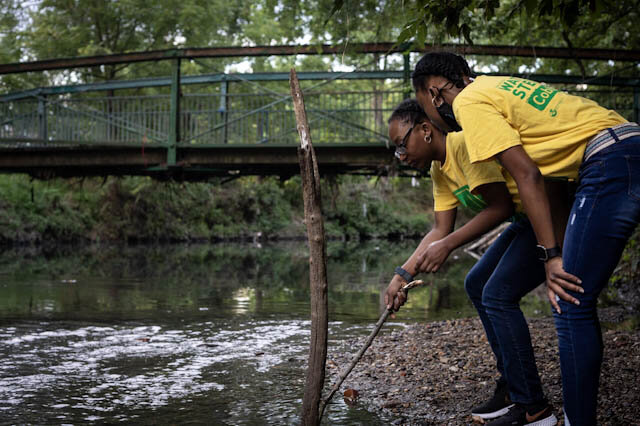Looking to dispose of old cell phones that live in a drawer and collect dust? How about piles of outfits that no longer fit?
The City of Philadelphia’s new partnership with Retrievr lets you do just that, all while abiding by social-distancing guidelines. Retrievr is a pickup service that allows residents to safely and responsibly recycle unwanted clothing and electronics from the comfort of their own home.
The initiative came about through the city’s SmartCityPHL Roadmap program, designed to foster innovative solutions to city problems. On May 28, the partnership with Retrievr was announced via its Pitch & Pilot program, which encourages city workers and outside collaborators to brainstorm solutions to municipal challenges and test out various technologies.
“Clothing and textiles are a big item that end up in landfills, and right now, there’s no systematic way to recycle those,” says Joanna Hecht, a Pitch & Pilot fellow.
Every year, Philadelphia generates 1.5 million tons of municipal waste, according to CleanPHL. Without city-wide recycling efforts and anti-dumping plans, this number could rise considerably. Electronics and textiles amount to approximately 10 percent of the city’s waste stream, according to SmartCityPHL. Mother Jones reported 70 percent of toxins in landfills are from e-waste.
“Clothing and textiles are a big item that end up in landfills, and right now, there’s no systematic way to recycle those.”
—Joanna Hecht Pitch and Pilot fellow
Pitch and Pilot fellowIn the United States, only 15 percent of textiles are recycled, leaving the rest to be incinerated or left in landfills, according to a 2019 report by the Environment Protection Agency.
“Ultimately the goal is to create a mechanism that allows us to partner with the private sector to solve municipal challenges,” says Emily Yates, SmartCityPHL director. “We really want to create a mechanism that allows us to pilot and test out technologies and evaluate them so we understand what works and what doesn’t … this is our way of being nimble to the need of innovation and really identifying great opportunities to partner with the private sector.”
When Pitch & Pilot team members first came together to find a challenge to tackle, waste diversion “rose to the top,” Hecht says. The team saw that waste- and water-based topics were a key problem for Philadelphia residents.
Battling waste diversion can be “tech-enabled” and can “align with the overall goals of the SmartCityPHL Roadmap, which are inclusive, equitable, collaborative and locally inspired,” Yates adds.
“Water and waste have been identified as a key problem by Philadelphia residents in surveys,” Hecht says. “We have the opportunity to not only address [waste diversion] and our broader goals by reducing the amount of waste that goes to the landfill, but also, I’m seeing an equitable solution that could be accessed by people all over the city.”
The SmartCityPHL team saw that overcoming waste challenges would improve the quality of life for Philadelphians, and inspire sustainability and environmental practices.
In December 2019, SmartCityPHL had an open call for companies to submit proposals with the focus of waste reduction and increasing waste diversion from landfills. More than 20 firms from around the globe responded to the Pitch & Pilot challenge.
The first winner of the challenge was Retrievr, a company that “returns value to unwanted clothing, shoes and electronics,” by offering contactless doorstep pickup, according to its website.
Now Philadelphians have the opportunity to divert their waste from landfills. For those who want to get rid of unwanted clothes, computers and phones, this is good news.
As a pilot program, pickups and recycling rates will be assessed so that SmartCityPHL collaborators can evaluate its impacts in city waste diversion.
Retrievr is simple and accessible, Yates says. The company provides doorstep pickups for clothing and electronics, like laptops, desktops, televisions and air conditioners. The pickup service is free for clothing and small electronics; there is a small fee for larger electronic items.
“Walking around the streets of Philadelphia, I constantly see people throwing stuff out in the trash—probably because we have no clue what to do with it,” says Yates. “There’s no additional cost to the citizens and it’s as easy as possible.”
By dividing its service areas into regions and routes, and then designating neighborhoods for specific days of the week, the company can avoid wasting gas and schedule pickups in concentrated areas, Hecht says.
The company will then identify any uses before they recycle items. For example, Retrievr might resell certain items or recycle them for parts, according to its website. Hecht believes its responsible practices and efficiency in the recycling process makes it a perfect fit for the pilot of the program.
Not only does Retrievr limit pollution caused by e-waste chemicals and discarded textiles, but it also promotes contactless sustainable efforts. In times like these, many of us are restricted in terms of sustainability. In this respect, Retrievr’s services are “well-timed,” says Yates.
“A lot of other options for disposing [e-waste and clothing] responsibly, are just not available right now,” Hecht adds. For those looking to get rid of these items that are piling up in their homes, now is a great time to use Retrievr, Yates says.
With the limitations put in place during the COVID-19 pandemic, Retrievr paused its services until May 4 in order to protect its employees and introduce protective measures.
Retrievr follows CDC guidelines and requires sanitization of its trucks, equipment and recyclable items. Yates believes that Retrievr’s services are more important than ever, as it promotes sustainability while remaining contactless amid the pandemic.
“[COVID-19] has created a space for people to think more clearly about our environment and what we’re putting out there,” Yates adds. “I’m hoping that this translates to people being more conscientious about what they’re throwing in the waste stream.”
During the pandemic lockdown, donation centers and charitable organizations were deemed nonessential businesses. As states and cities reopen, many are still cautious about trips that can increase exposure for themselves and others.
Yates points out that unnecessary contact with others, like trips to donation centers, make many people uncomfortable. With a middleperson like Retrievr, citizens can limit personal contact while responsibly disposing of goods.
“I think it just really makes it easy for people to do the correct thing with their waste … without any danger to your safety,” Yates says.
Residents can visit retrievr.com or call or text “PICKUP” to 757-70-FETCH (757-703-3824) to schedule a pickup.


